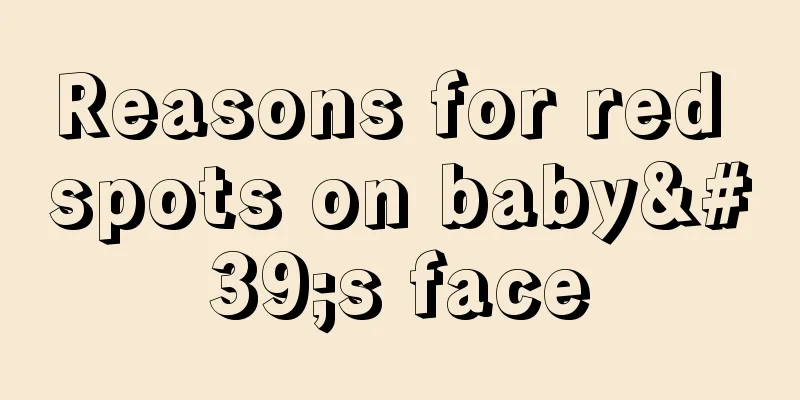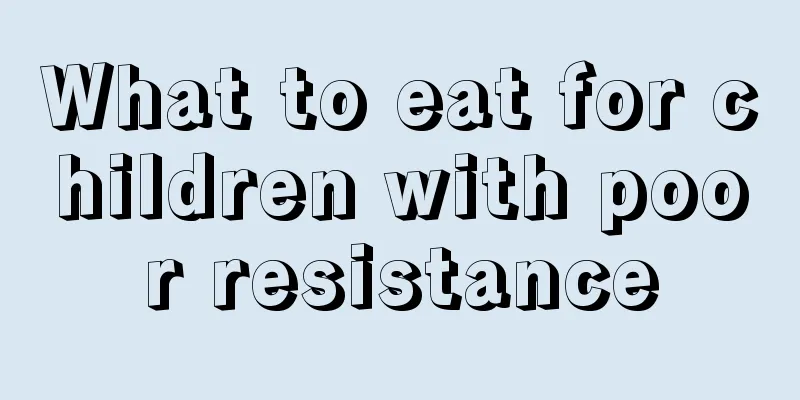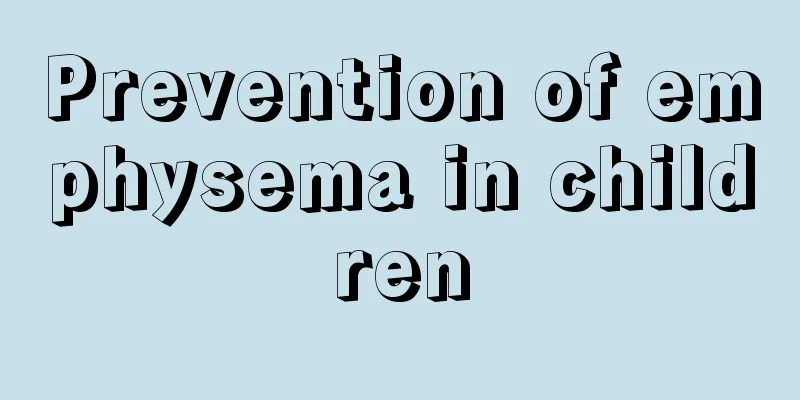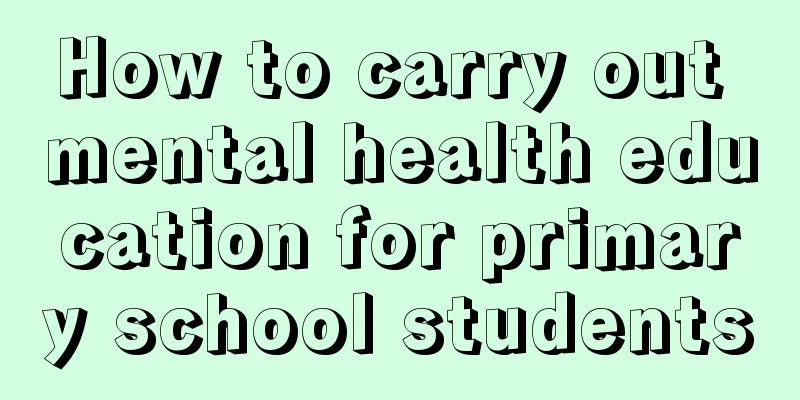What should I do if my child lies? Parents, please look here
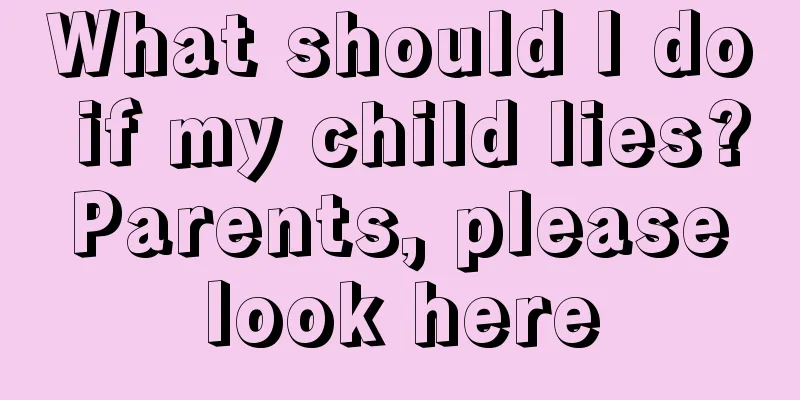
|
Many parents are particularly averse to their children talking. In fact, if a child talks frequently, it is difficult to correct him no matter how severe the punishment is. So what should we do with these children? In fact, according to expert statistics, 67% of children's lies are caused by fear and fear of being laughed at, 10% are related to children's imagination and exaggeration, and only 20% of children lie intentionally. Therefore, when faced with children's lies, parents do not need to be anxious, but should calmly analyze the reasons behind their children's lies and then provide targeted education. 1. Parents should not "teach" their children to lie Many parents do not realize the impact that some of their small behaviors have on their children. For example, if a parent does not like to receive visitors, he or she may teach the child to say, "If someone comes to see me, say I'm not here"; if he or she does something he or she does not want her or her spouse to know about, he or she may also tell the child, "Don't let your mother know"; some parents say things they cannot do and make empty promises to their children. Because parents have a certain prestige in the minds of their children, children believe that everything their parents say or do is right, and gradually they learn to lie. Parents often don't realize the consequences of such behavior at first, and they learn to be honest in front of their children. 2. Don’t punish children for telling the truth In real life, there are often such examples: when a child tells the truth, the parents criticize him harshly or even physically punish him. For example, a mother took sick leave to go out and play, and her child told the truth to a colleague who came to visit her mother. When the child’s mother found out, she beat him up and taught him to tell others "I went to the hospital" if something like this happened again. In this way, children will gradually realize that telling the truth will be punished, but not telling the truth will keep them safe and may even win their parents' praise. If the child makes a mistake next time, he will try his best to conceal the past and avoid punishment. Therefore, the correct approach for parents should be: after the child admits his mistake, first praise him for his honesty, and then help the child analyze the reasons for the mistake. 3. Help children distinguish between imagination and reality Psychologists have found that only about 18% of 6-year-old children can distinguish between reality and imagination, while 90% of 9-year-old children can understand whether a story is made up or real, and begin to understand the issue of honesty from a new perspective at the age of 11-12. In other words, children gradually understand what "lies" and "honesty" are as they grow older. Therefore, parents should start helping their children learn to distinguish between what is pretend and what is real when they are 3-4 years old. For example, when playing a game, the parent pretends to be the big bad wolf and the child feels scared. At this time, you can explain to him what "pretend" means. For older children, you can discuss the difference between fact and fiction with characters in science fiction movies, fairy tales, and plays. 4. Reward honest behavior promptly To cultivate good behavioral habits, rewards are more important than punishments. When you find your child getting into trouble, don't get angry and ask him, "Did you do this?" In this case, the child may lie for fear of being beaten. This way of asking questions actually induces children to lie. Parents can look their children in the eye and wait for them to tell the truth or say "what happened". If the child admits his mistake or asks for forgiveness, he should be praised for his honesty first, then criticized and his punishment should be reduced accordingly. |
<<: Can babies eat potatoes when they have diarrhea? Young parents should remember
>>: Why does my baby's hands and feet shake after falling asleep?
Recommend
Symptoms of capillary hemangioma in babies
Hemangioma is a very common disease, which has a ...
The reason why baby has white spots on eyebrows
White spots are a common type of vitiligo, and so...
How to treat baby's milk curds?
Every baby is the center of the whole family, esp...
What is the cause of hydronephrosis in children?
Hydronephrosis is a common disease in children, b...
There are 8 quick remedies for toothache in children
As the old saying goes, toothache is not a diseas...
What are the methods to relieve infant cough?
When a baby has a problem with his body, you cann...
What causes red and swollen eyes in children?
All the organs of a child's body are relative...
What to do if your child stutters?
In daily life, we often hear some mothers complai...
What are the benefits of eating honey for children with cough
Children's physical constitution and immunity...
How to treat popliteal cysts in children
Children's physical health is very important,...
What causes high bilirubin in newborns?
Bilirubin is a relatively common hormone substanc...
What are the dangers of nail gingivitis in children?
Many parents have discovered that their children’...
Symptoms of mild brain damage in infants
Nowadays we often hear about brain injuries, but ...
How many times a day should a newborn baby poop?
We all know that babies have more bowel movements...
How many months does a child start talking?
With the development of society, more and more pa...
